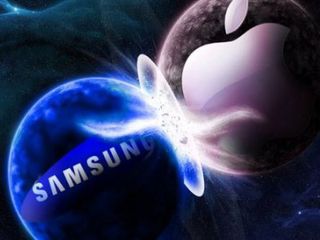
A U.S. judge has denied Samsung's bid to be granted a new trial against Apple over the latter's $1 billion court case victory back in August, with the former being told it should have carried out more work during jury questioning.
The South Korean electronics giant pointed towards the jury foreman's failure to disclose previous litigation with Seagate Technology, which is a company in which Samsung is a major investor, in addition to alleged bias showcased by statements made to the media after the verdict.
Samsung argued that Velvin Hogan should have revealed to the judge during jury selection that he had been sued by Seagate, one of his former employers, which led to his filing for personal bankruptcy in 1993.
"Samsung has a substantial strategic relationship with Seagate, which culminated last year in the publicized sale of a division to Seagate in a deal worth $1.375 billion, making Samsung the single largest direct shareholder of Seagate," the firm said in October. "Mr. Hogan's failure to disclose the Seagate suit raises issues of bias that Samsung should have been allowed to explore in questioning."
Samsung also referred to statements Hogan made during a post-verdict interview with Reuters. He said to the media outlet that the "the jury 'wanted to send a message to the industry at large that patent infringing is not the right thing to do, not just Samsung,'" and that the "message [the jury] sent was not just a slap on the wrist."
In denying the request, the U.S. District Court judge presiding over the patent case, Lucy Koh, stated that Hogan's comments about legal standards utilized during deliberations were barred by federal evidence rules.
"Even if the standards related by Mr. Hogan were completely erroneous, those statements would still be barred, by Federal Rule of Evidence 606(b) and cannot be considered in deciding whether to hold an evidentiary hearing," she explained.
Stay On the Cutting Edge: Get the Tom's Hardware Newsletter
Get Tom's Hardware's best news and in-depth reviews, straight to your inbox.
Koh blamed Samsung for not asking Hogan the proper questions that may have revealed any alleged bias against Seagate.
"Samsung could have uncovered the Seagate lawsuit, or at least Mr. Hogan's feelings regarding Seagate, had it exercised reasonable diligence in questioning Mr. Hogan during its allotted time in voir dire," she said. "Moreover, even without asking Mr. Hogan directly, Samsung could have exercised reasonable diligence outside of trial and could have discovered the lawsuit by requesting the bankruptcy file, exactly as Samsung did later, when it became motivated to do so."
-
azraa So, to conclude this whole event, Apple gets 1B for silly patents, ban on some Samsung products, the ban then gets removed. Nothing changes. Except Apple gets 1 free billion USD.Reply
That is some bullshit >:( -
olaf if i were Samsung i would make apple pay back that money in any component that i'm going to give them :DReply -
twelch82 That judge is just bad, or getting paid by Apple. Someone else should take over the case.Reply -
wavetrex This won't end here, Samsung will definitely go to a higher court. They aren't just giving up... The battle is still on...Reply -
kartu Wow, Lucy Koh is still the one in charge?Reply
There is something very weird in US justice system... -
techcurious So, because Samsung did a lousy job of background checking before hand, it doesn't matter what was discovered later? It's like saying "It's your own fault for not checking the kitchen at the restaurant before eating there. Even though your whole family nearly died from Salmonella poisoning, the restaurant is not liable!" wtf?Reply -
antilycus $$$ talks in the U.S. Justice system. ANy judge can be bought out...that's what they really should teach our children. Justice is just an idea that will never actually work.Reply -
davewolfgang Chances are that the jury foreman LIED on the pre-trial questionnaire. But then this judge (who's house and all his relatives houses are filled with crApple stuff) doesn't care.Reply
Most Popular





